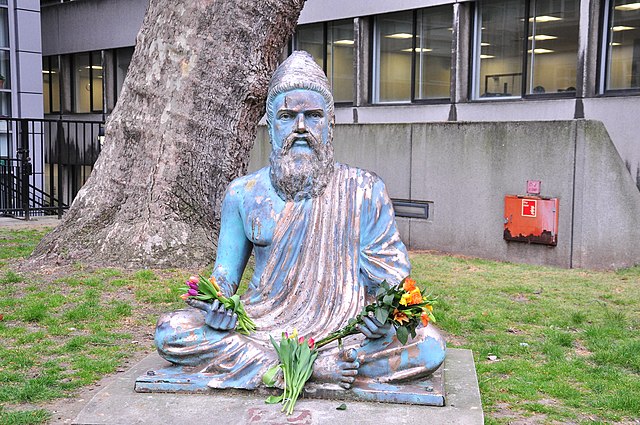Patience is the ability to endure difficult circumstances. Patience may involve perseverance in the face of delay; tolerance of provocation without responding with disrespect or anger; forbearance when under strain, especially when faced with longer-term difficulties; or being able to wait for a long time without getting irritated or bored. Patience is also used to refer to the character trait of being steadfast. Antonyms include impatience, hastiness, and impetuousness.
Patience, engraving by Hans Sebald Beham, 1540
Patience in waiting for a video to start is impacted by the Internet speeds that one is accustomed to. Users accustomed to faster Internet connectivity (e.g., fiber) abandon a slow-loading video at a faster rate than users with slower Internet connectivity (e.g., cable or mobile).
Three virtues by Jan Saenredam after Hendrik Goltzius. This is plate 2, entitled Patientia.
A virtue is a trait of excellence, including traits that may be moral, social, or intellectual. The cultivation and refinement of virtue is held to be the "good of humanity" and thus is valued as an end purpose of life or a foundational principle of being. In human practical ethics, a virtue is a disposition to choose actions that succeed in showing high moral standards: doing what is right and avoiding what is wrong in a given field of endeavour, even when doing so may be unnecessary from a utilitarian perspective. When someone takes pleasure in doing what is right, even when it is difficult or initially unpleasant, they can establish virtue as a habit. Such a person is said to be virtuous through having cultivated such a disposition. The opposite of virtue is vice, and the vicious person takes pleasure in habitual wrong-doing to their detriment.
Cardinal and Theological Virtues by Raphael, 1511
Personification of virtue (Ἀρετή) in Celsus Library in Ephesos, Turkey
Valluvar (Statue at SOAS, University of London).
Virtues fighting vices, stained glass window (14th century) in the Niederhaslach Church







